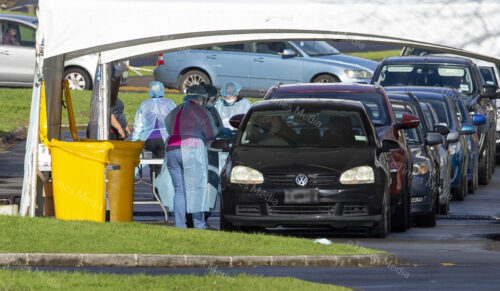
A Pakuranga nurse who takes Covid-19 swabs and vaccinations is concerned for her family’s safety.
Aizzell Floresca Manuyag, 35, is an experienced nurse who is currently working in a GP practice in Panmure, and is the site leader for their Covid vaccinations. She does both Covid-19 swabs and vaccine shots.
She has been a nurse since 2007 and studied at the University of Auckland.
Manuyag secured a job as a practice nurse in Panmure on Queens Road. They have been taking Covid-19 swabs throughout the year.
During the first lockdown, Manuyag and her fellow nurses shared the same feeling of fear, curiosity and eagerness.
“We were (and still are) scared of Covid but we were all eager to help,” she says.
When it came to their families, she says that they were concerned about them being at the front line. “We were also worried about them,” she says.
“We were worried that if we get Covid, we will pass it onto our families.”
Many of them live will elderly and/or someone with a chronic condition. Some of her colleagues had to live separately from their families and children when they were working at the community testing station.
This fear – studies show the effect of Covid-19 on health care workers – is a common occurrence amongst those in the profession around the globe. Health care workers are, even under usual conditions, at risk for anxiety, depression, burn-out and other conditions.
This has been exacerbated by the pandemic.
Manuyag and her colleagues share the same concerns with the ongoing lockdown.
“This lockdown is so much harder because we have both Covid tests and Covid vaccines,” she says. “The demand is enormous and ever increasing,” she says.
“We are already short-staffed but have to send some of our staff to help out in community testing and vaccination centres.”
At the end of each day, Manuyag told the Times, they are exhausted and know that the next day will “be the same or worse”.
“When I come home from work, I go straight to the shower and have to wash my hair,” she says. “I use a separate shower from the rest of my family.”
She puts her scrubs into a yellow waste bag and washes them separately. Her husband and in-laws have been fully vaccinated.
In terms of protection from the virus, Manuyag says their clinic’s PPE gear is still an issue. “We ordered PPE pre-lockdown,” she says. “We only received four out of the eight items that we ordered.”
Stress and being overworked are the main issues she and her colleagues face during lockdowns. “We do check and support each other in every way we can,” she says.
“We do ask the public though to be kind and patient with us. We try to meet everyone’s needs with the limited resources we have”.
Manuyag says that she is happy with her work. “I do feel proud and thankful that I am in a position to help during the pandemic,” she says.
“There are times that I do wish I could work from home. I have two young kids and my husband is stuck in Australia.”
The nationwide 30,000 nurse strike that was scheduled on August 19 has been delayed due to the current Covid-19 lockdown. “We need more nurses, a better and safer work environment and better pay,” Manuyag says.
“These lockdowns have showed us how we nurses will always put our community first despite being overworked, underpaid and undervalued.
“I hope the government and health system recognises that and gives us what we fairly ask.”








